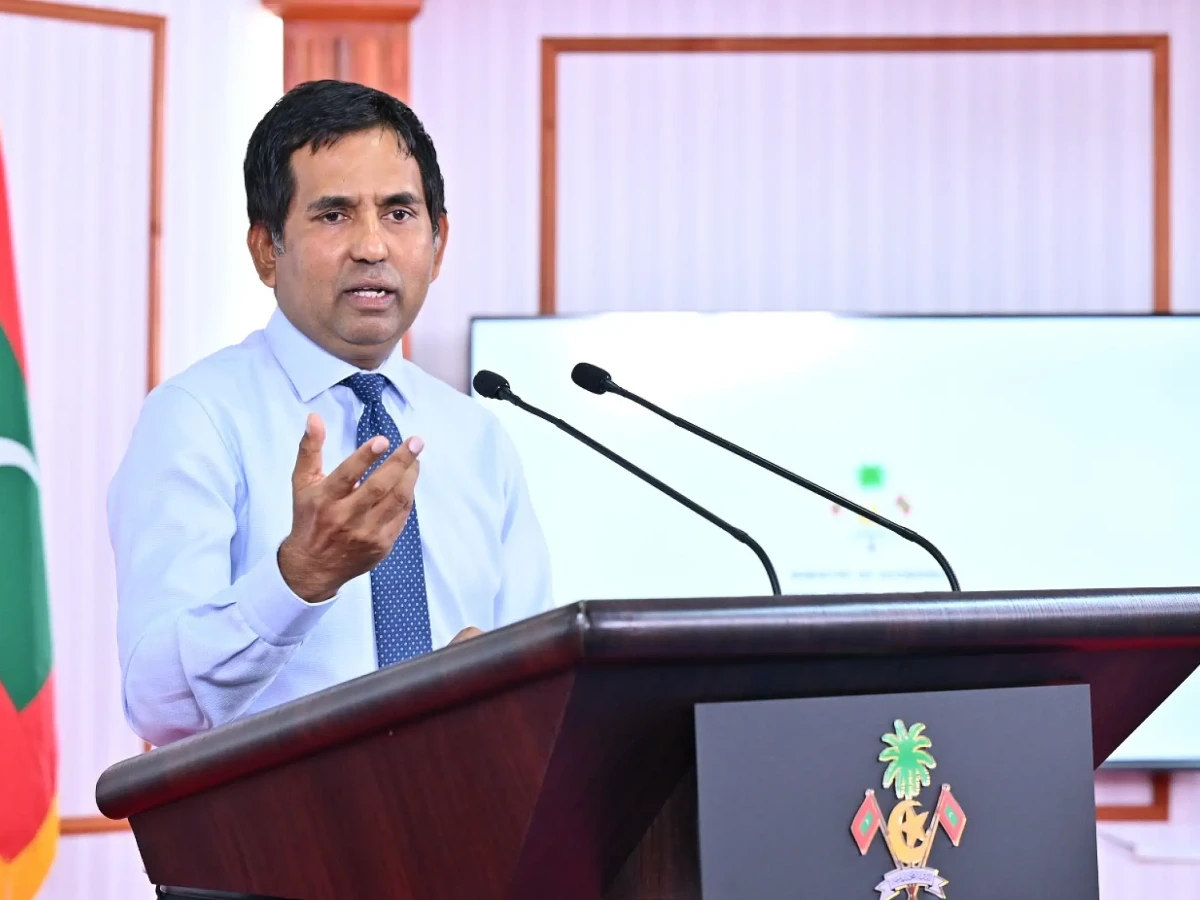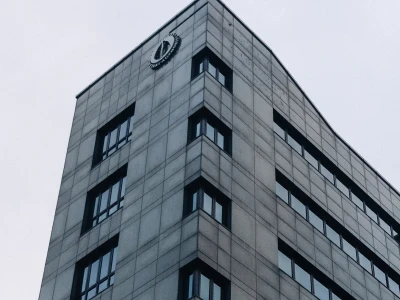
Govt measures weakening dollar black market, Saeed says
According to the minister, the amount of US dollars marked to banks has increased by 40 percent compared to earlier levels.
Economic Minister Mohamed Saeed has stated that government-initiated reforms are expected to weaken the black market in US dollars.
He made the remarks during a press conference held at the Presidential Office on Monday, in response to questions from journalists regarding the current state of the parallel market.
Saeed cited statistics previously shared by President Mohamed Muizzu in the Rayyithunna Eku podcast, noting that US$150 million (approximately MVR 2.3 billion) was deposited into banks between January and March.
According to the minister, the amount of US dollars marked to banks has increased by 40 percent compared to earlier levels. He added that the trend has remained steady and is anticipated to improve further.
Saeed said that under the revised regulations introduced by the Maldives Monetary Authority (MMA), the black market would continue to weaken. He also outlined several measures being taken by the government to boost dollar revenue, including efforts to increase the volume of goods exported from the Maldives.
Foreign exchange earnings from exports in January and February this year rose by 11 percent compared to the same period last year. During the same period, fish exports increased by 40 percent.
Improvements have also been made to facilitate easier dollar exchanges for students and Umrah pilgrims, Saeed noted.
Despite signs of weakening in the black market, the exchange rate remains above the official rate. Responding to a question from a journalist, the minister said that price corrections would not occur immediately in a free market and would instead adjust based on demand.
He reiterated that, as previously stated by the President, demand for US dollars in the black market would decrease significantly once government-owned companies discontinue their use of unofficial channels for foreign currency transactions.
Saeed said the rise in dollars directed to banks, now up by 40 percent, indicated that the reforms were having an effect. He noted that past governments had discussed similar policies but had not implemented them, adding that it was President Muizzu who initiated enforcement.
The minister also referenced the Foreign Exchange Act that came into force in January. Under the new law:
-
Resorts are required to exchange US$500 per tourist or 20 percent of their revenue to the formal banking system.
-
Category B establishments—including guesthouses, safaris, and hotels—must exchange either US$25 per tourist per month or 20 percent of their monthly foreign currency income.
-
Tourist service providers and non-financial entities receiving at least US$15 million in foreign currency annually for services or goods are also required to exchange 20 percent of their monthly income.




